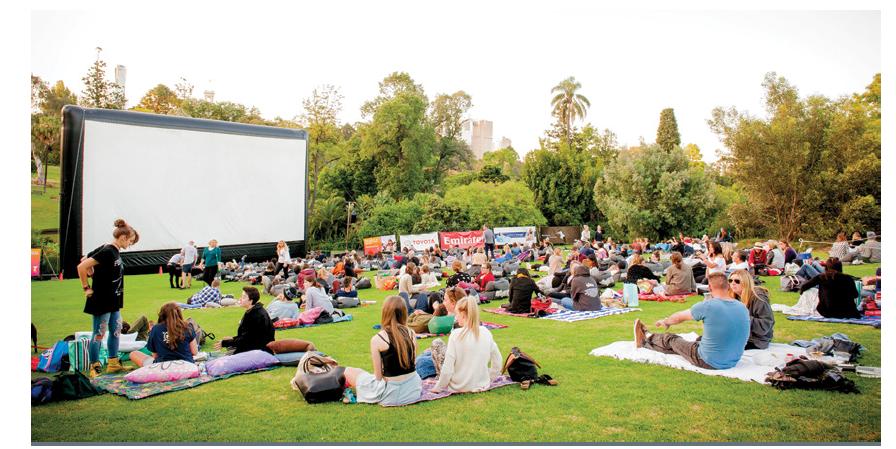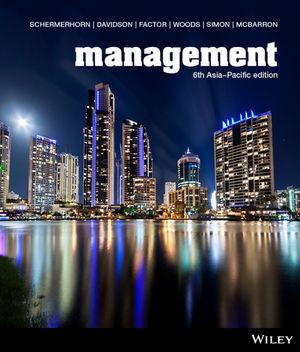Like many startups, Port Shorts began as an idea among friends. Its a shortfilm festival held in
Question:
Like many start‐ups, Port Shorts began as an idea among friends. It’s a short‐film festival held in Port Douglas, Far North Queensland that offers $15 000 in prizes (including a $4000 course on filmmaking from the New York Film Academy), and in 2015 ran a two‐night extravaganza showcasing local filmmakers alongside visitors from around the world. It is now recognised as a leading festival of its kind and the Douglas Shire Council has acknowledged the festival’s contribution to Port Douglas as an international destination.
Like most things in this sleepy tropical resort town, Port Shorts is a relaxed affair that mirrors its local environment. The grassroots not‐for‐profit unincorporated association runs like a local tennis club, on the back of a dedicated team of volunteers who had a vision for their own film festival. And like in much of regional Australia, a handshake goes a long way. Goodwill is crucial.
Perhaps it’s the photogenic light in the tropics or the unique world heritage rainforest scenery alongside the Great Barrier Reef that attracts increasing global attention; the area is now a magnet not only for tourists but also international filmmaking. A favourable exchange rate for the Australian dollar helps, along with a local community with many artistic and experienced people for hire in the industry. Television series, such as The Code, and major international productions, such as The Thin Red Line and The Pacific, have been shot in the area, contributing valuable economic benefits as well as providing local school children the opportunity to learn skills in filmmaking and television.
The festival committee organises Port Shorts, gets sponsors to donate prizes, manages the media and coordinates the judging of entries in the various categories—from four‐minute films by beginners to seven‐minute shorts by experienced filmmakers. The committee sets up the two evenings of outdoor projection of the 40 or so finalist short films for the public to enjoy. Overall, the festival attracts several hundred visitors, offers a genuine community artistic activity and helps locals and others to learn skills and gain industry insight. Mossman High School film and television teacher Elliot Davidson is a key organiser of Port Shorts and runs full‐day workshops for his students with visiting nationally acclaimed writers, directors actors and producers. Asked about how the planning function is managed, Davidson acknowledges that after the initial meeting to allocate work area responsibilities, the committee meets only as needed in the five months leading up to the October event, with most communication and decisions made by group email. As might be expected, the better the planning goes in the lead‐up, the better the festival runs at the time.
What’s special about it? It’s a project‐based model for management, producing a one‐off event with many different stakeholders (sponsors, judges, producers, industry participants, contributors, suppliers and attendees). Each relationship with each stakeholder group has to be managed and integrated with all the others.
The key to success is continual communication between organisers, so everyone knows what everyone else is doing. Planning starts at the top in overview and spirals out to the detail with plans becoming more short‐term as the event gets closer. However, being a community group with a flat organisational structure, it is not so much top‐down as inside‐out. The driving force comes from within the group, and as planning proceeds it takes in information from the environment. Contingencies planned for include power failures and inclement weather.
QUESTIONS
1. It is said that management involves using strategy and planning to align the organisation’s mission and purpose with its resources and its operating environment. How are these elements — the mission, the resources and the market — being brought together to influence the planning function in Port Shorts?
2. How critical is planning for the successful operation of the organisation? What might the organisers do to improve the outcomes? What planning are they not doing that they should be doing? What might the organisers have to do to take the festival ‘global’?
Step by Step Answer:

Management
ISBN: 9780730329534
6th Asia Pacific Edition
Authors: Schermerhorn, John, Davidson, Paul, Factor, Aharon, Woods, Peter, Simon, Alan, McBarron, Ellen





